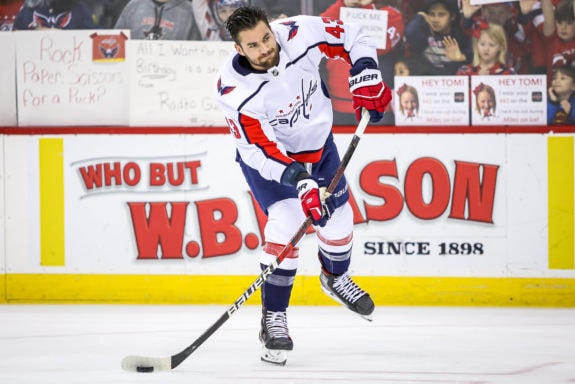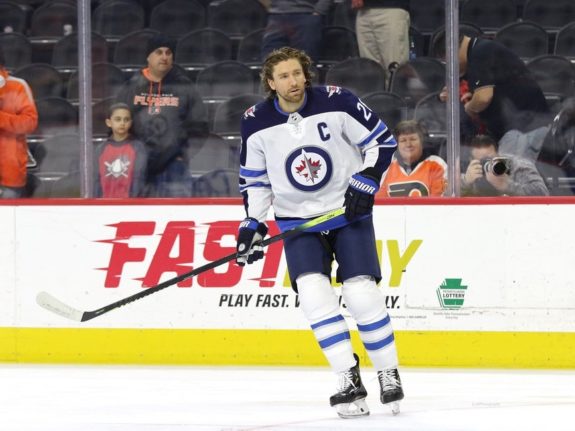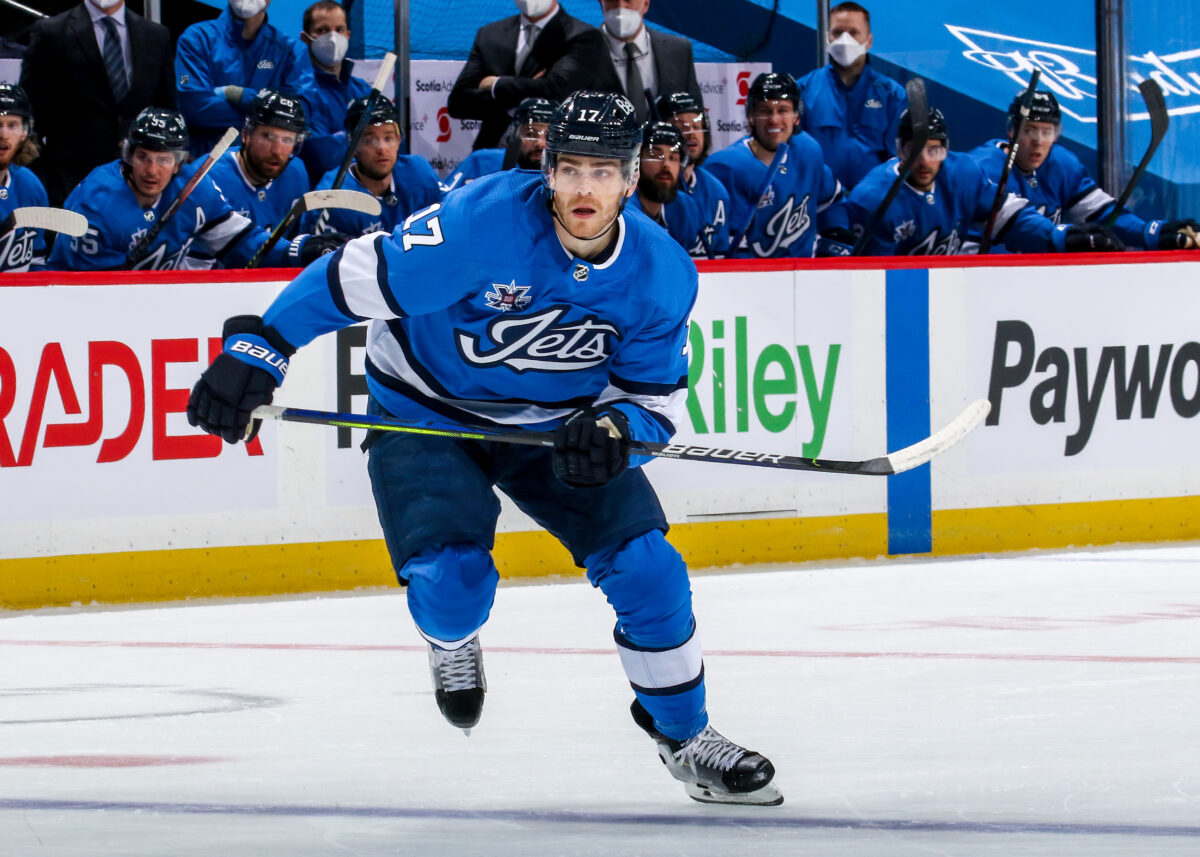Mark Scheifele sat out Friday night’s Game 2 between the Winnipeg Jets and the Montreal Canadiens as he was serving the first of a four-game ban for charging Jake Evans.
The decision to hand the star centre such a strict suspension was yet another confusing move by the NHL’s Department of Player Safety.
DoPS Comes Down Hard on Scheifele; Calls Hit “High, Predatory”
Of course, there will always be outlier reactionary types who call for huge suspensions in every situation. But most reasonable folks and pundits were predicting a two-game suspension for Scheifele, a player with no history of discipline in 575-career regular season games and 33-career playoff tilts. Instead, he was assessed double that.
In the video justifying the suspension for the hit Scheifele delivered in the final minute of Game 1, the NHL DoPS said the following:
“It is also important to note that we have heard Scheifele’s argument that he gathers speed and maintains momentum in order to make a legitimate defensive play and attempt to prevent a goal from being scored. However, as Evans comes around the net with the puck, Scheifele does not attempt to make a play on the puck with his stick. Instead, he takes one hand off his stick, turns his shoulder and loads up for contact. While players are not required to attempt to play the puck, on this play Scheifele’s choice to not make a play on the puck tells us that he is conceding the empty-net goal.”
“This is also not a mere collision between two players attempting to occupy the same space on the ice,” the video continued. “Instead, it is apparent to our department that his intention on this point is to deliver a hard, violent check to one opponent, with the outcome of both the play and the game already having been decided. In short, this is a player who has travelled a considerable distance, is moving with exceptional speed and is fully aware of his momentum, who chooses to charge into a vulnerable opponent with a high, predatory hit that causes an injury.”
No one rational can justify the hit: it was reckless, there was contact with Evans’ head, and it didn’t have to happen — at least not with the amount of force it did.
In a Friday-morning media availability, Scheifele denied the hit was “predatory” as the DoPS claimed, saying his intention was to try and negate a goal by cutting Evans off at the post and there was no malice.
“I don’t go in with a frame of mind of injuring a hockey player,” he said. Scheifele went on to call the four-game suspension “pretty excessive,” and said he doesn’t agree with it, but that he accepts accountability for his actions and will not appeal.
Did DoPS Make an Easy Example Out of Scheifele?
Some argued the suspension is an instance of DoPS head George Parros flexing his muscles to show he’s credible and serious about player safety. He’s taken a lot of flak lately and there’s been a growing number of voices calling him unsuited for his role.
The former Canadiens’ tough guy has been criticized for being too light on notorious repeat offenders, such as Tom Wilson in early May and Ryan Reaves last week, and it’s been suggested he feels some sympathy for or solidarity with fellow pugilists.

Parros piled up 1,082 penalty minutes in 474-career NHL games, while producing only 15 goals and 13 assists for and 28 points. He dropped the gloves 158 times over nine seasons.
DoPS Treats Repeat Offenders with Kid Gloves
Wilson was only fined $5,000 for slamming Artemi Paranin’s head into the ice in a late-regular season game between his Washington Capitals and the New York Rangers. Reaves was suspended only two games for bringing Ryan Graves down to the ice from behind with a choke-hold, then kneeling on his neck in Game 1 of the second-round series between the Vegas Golden Knights and Colorado Avalanche.

Tom Wilson, Washington Capitals (Jess Starr/The Hockey Writers) 
Ryan Reaves, Vegas Golden Knights (Amy Irvin / The Hockey Writers)
It’s certainly easier to make an example out of small-market team like the Jets than the Capitals or Golden Knights. Making it even more of a snap to make that example of Scheifele was that he’d been involved in some scrums with Ben Chiarot in the third period and had taken a roughing minor earlier in the third. Also working against Scheifele was that Evans sustained a concussion. Injuries should have no bearing on suspension length, but they do.
It’s also possible Parros wanted to avoid a repeat of what occurred after he failed to suspend Wilson: a huge and disgraceful pre-meditated line brawl in the teams’ next game with players beating each other silly.
DoPS Did a Poor Job Protecting Jets This Season
A few different times this season, similar transgressions against the Jets have gone unpunished.
Blake Wheeler took a sturdy elbow to the head from the Ottawa Senators’ Brady Tkachuk in early April, causing the captain to miss six games with a concussion. No supplemental discipline was assessed. In Mid April, Adam Lowry was blindsided by a high hit from the Toronto Maple Leafs’ Alex Galchenyuk while he was in a vulnerable position, causing Lowry to leave the game and miss the next four. Once again, crickets from the DoPS.

Blake Wheeler, Winnipeg Jets (Amy Irvin / The Hockey Writers) 
Adam Lowry, Winnipeg Jets. (Photo by Jonathan Kozub/NHLI via Getty Images)
Lack of Consistency is the DoPS’ Biggest Issue
The NHL DoPS is like a box of chocolates, you never know what you’re going to get. (Our apologies to Forrest Gump.) What the Jets got was a huge hole up the middle until Game 6, if the series goes that long. The Canadiens hold a 2-0 series lead after a 1-0 victory Friday night.
Related: Jets Lose Scoring & Leadership With Scheifele Suspension
The issue is not with the suspension itself. The issue is that the DoPS’ decisions are wildly inconsistent, seemingly random at times, and that hurts their credibility.
The DoPS needs to sort out this issue soon. If that means harsher suspensions for everyone and each hit like Scheifele’s nets a four-game ban — even for a first-time offender, in the playoffs — that’s fine.
But it likely won’t. And if the next suspension dished out is lenient or another repeat offender skates away scot-free in the near future, the Jets will have every reason to be upset. They will be able to make a compelling case that their star was treated too severely for a singular out-of-character action.